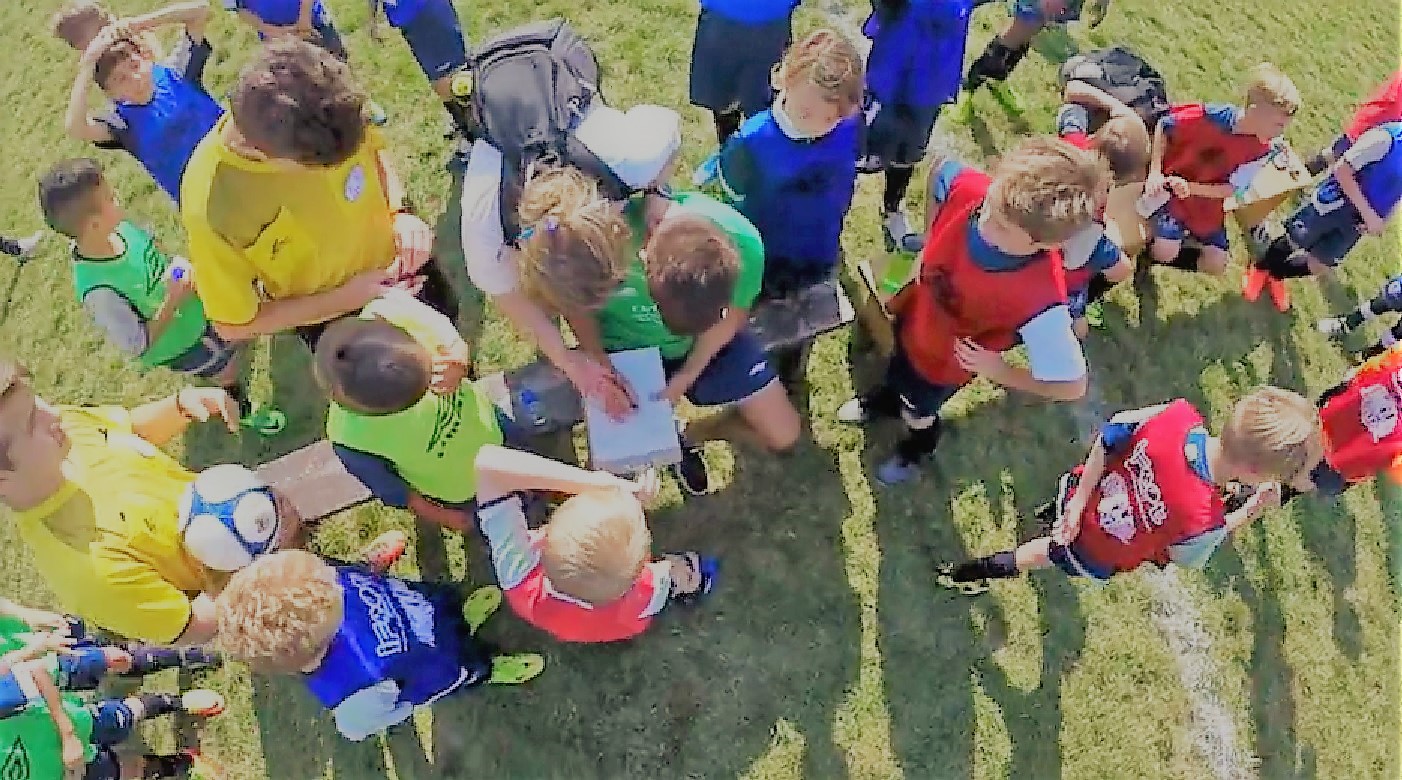

Keep it simple, yet complex (youth soccer coaching)
Throughout my five last years of football rediscovery, there has been uncountable times where discussions or presentations reinforced the need to read the game keeping its whole complexity. However, everybody knows we can’t manage to learn nor transmit complexity at glance. As any students, players need bits, but coaches may earn in efficiency if they spot which these bits are useful to their players.
At first, it’s been proven that too much information holds performance back. This can be observed when teaching is based on action rules such as “if-then” conditions. Let’s think we are not programming our players, but rather unlocking their features. An overload of “if-then” rules also brings confusion in an environment that varies so much. A rule that was valid in the situation a coach just corrected might not be as valuable in the next one.
Also, such rules tend to simplify the play like adults tend to translate rich sentences to simple words for children. We have to be aware it does lose nuances when that happens. Therefore, it is necessary to understand how “simple” can coaches speak of – or read the game – to keep it convenient for players, and genuine for the game.
Toolbox
- I couldn’t tell you how many times my professor would insist on working with the big picture. It truly unveils the principal information about how the players are doing. Looking for tendencies in the play helps picking the most important. It also helps to contextualize the more detailed bits of the game that will be more useful to the players. Keep in mind tutors use this same principle in top coaching education.
- Since you’ve pictured what you want to put in place – the ideal play – you are now able to identify what is holding the players back from executing it. To make things happen the way you picture them, coaches can propose gamebreakers as an incentive to make certain types of actions. We can think of this trick as a “loaded feature” to unlock everything that ensues, just like superpower in videogames.
- Naturally, for this to work in your favour, games have to be conducted and played with the excitement of playing. Their components (structure, primary rules) have to fit and work. The stakes of losing or winning have to be maintained. But most of all, there must be space for the unlockable features, both for the players to discover the related actions, and for the coaches to introduce them as the gamebreaker, that is things players can do to make the play more complete.
Playing is a complex thing. And the more it gets competitive, and complete, the more complex it keeps on getting. Accepting this is may allow coaches to use simplicity as global play rules to apply to games rather than specific action rules to force in players.
The universe of play is a player thing. It is important, for coaches, to act accordingly, in order to keep the game alive.
Find more info in our online courses clicking here.
Follow us o Facebook!
Categories
Latest Courses
-
9 Lessons
-
1 Lesson
-
6 Lessons
You May Also Like
- Blog
- August 1, 2022
- Blog
- June 3, 2022
- Blog
- May 27, 2022
Developed by Brandit Digital Media Services.





